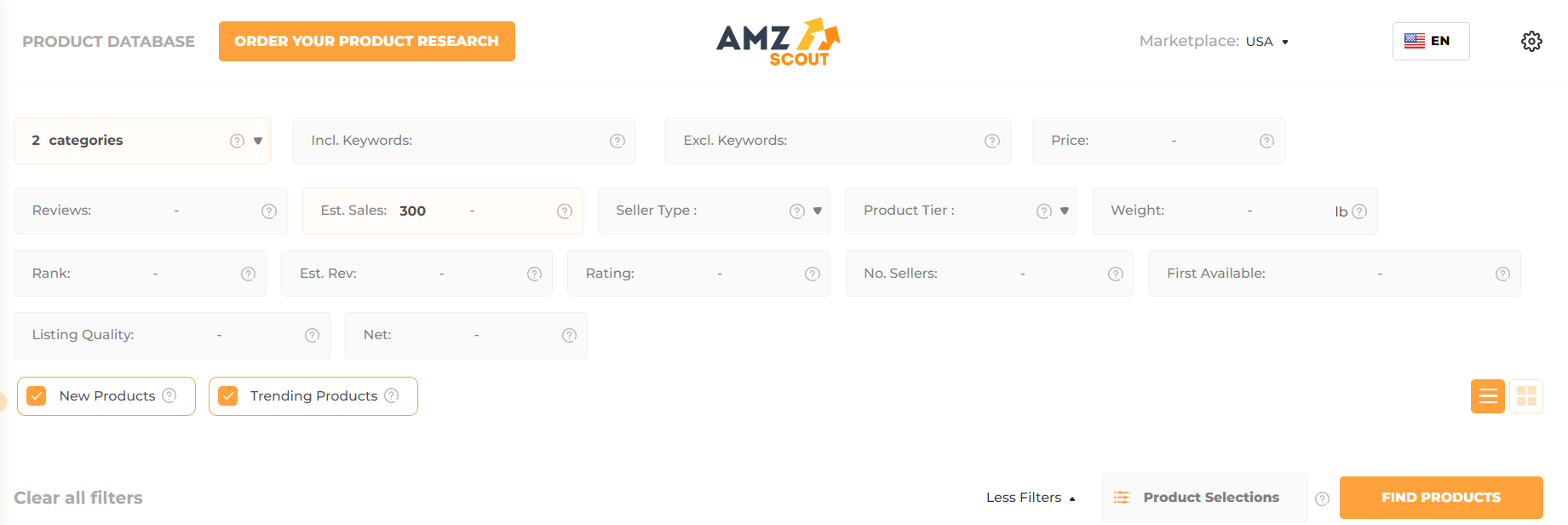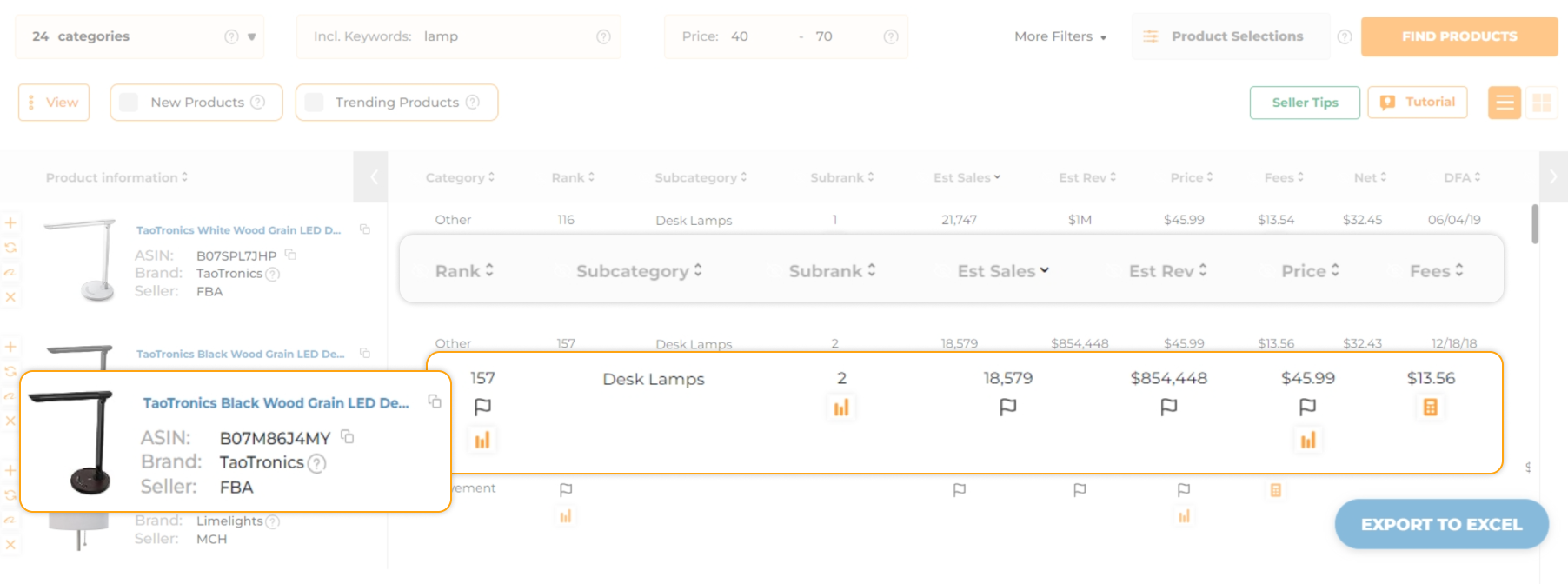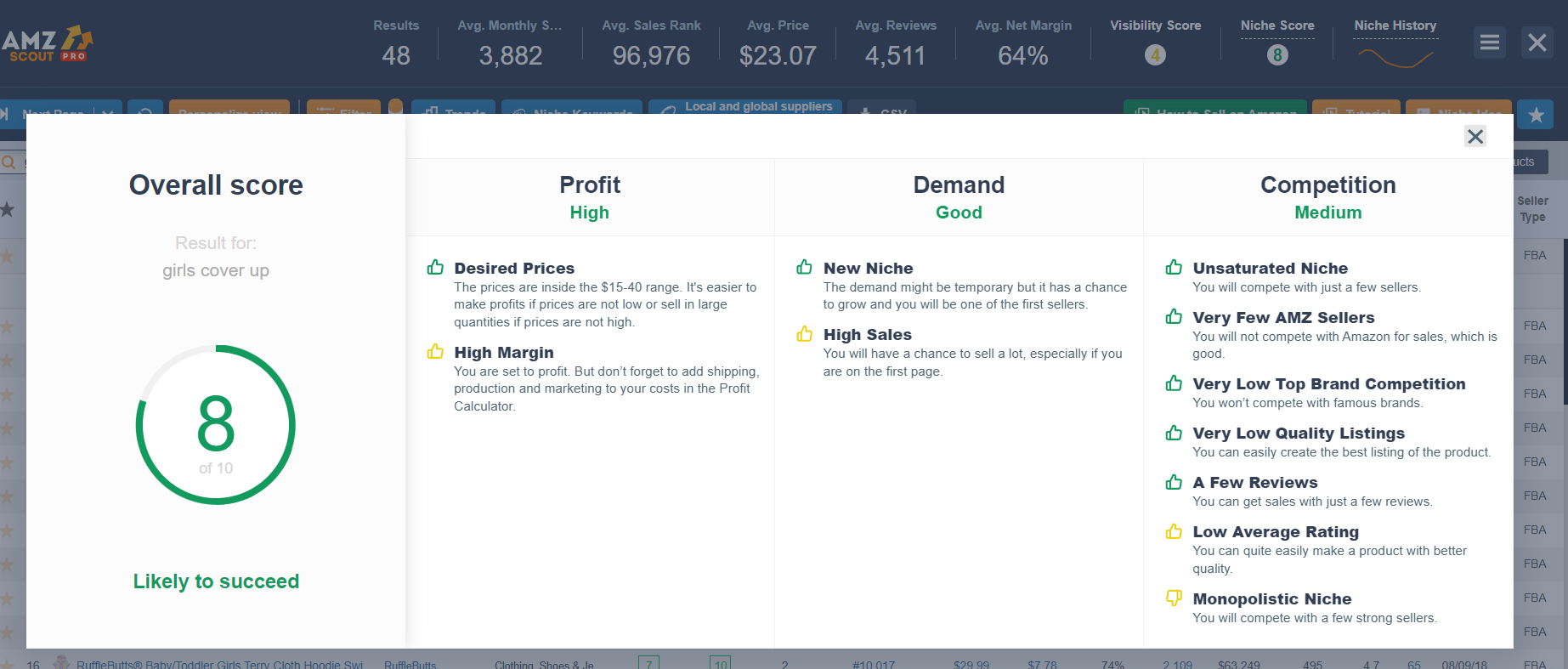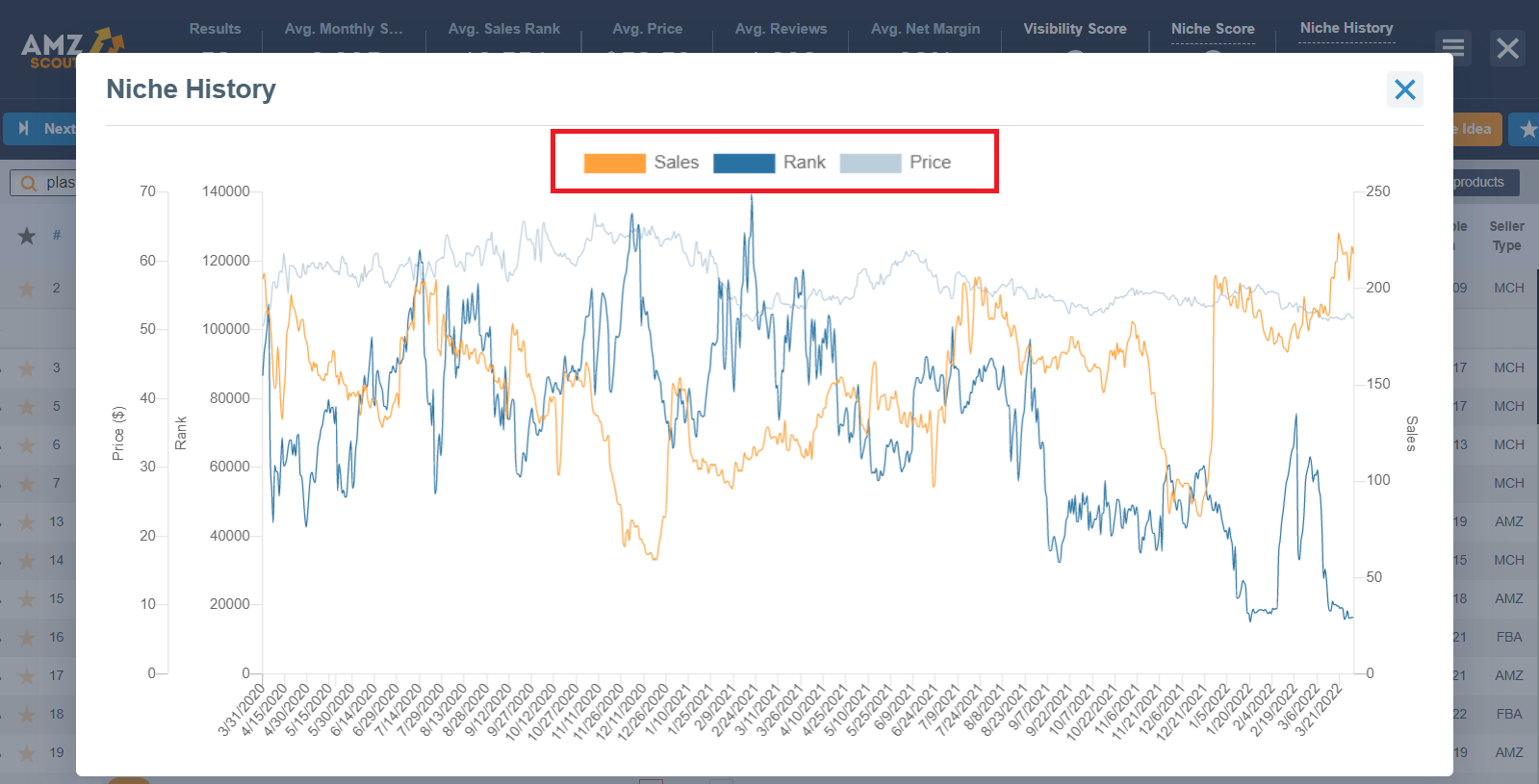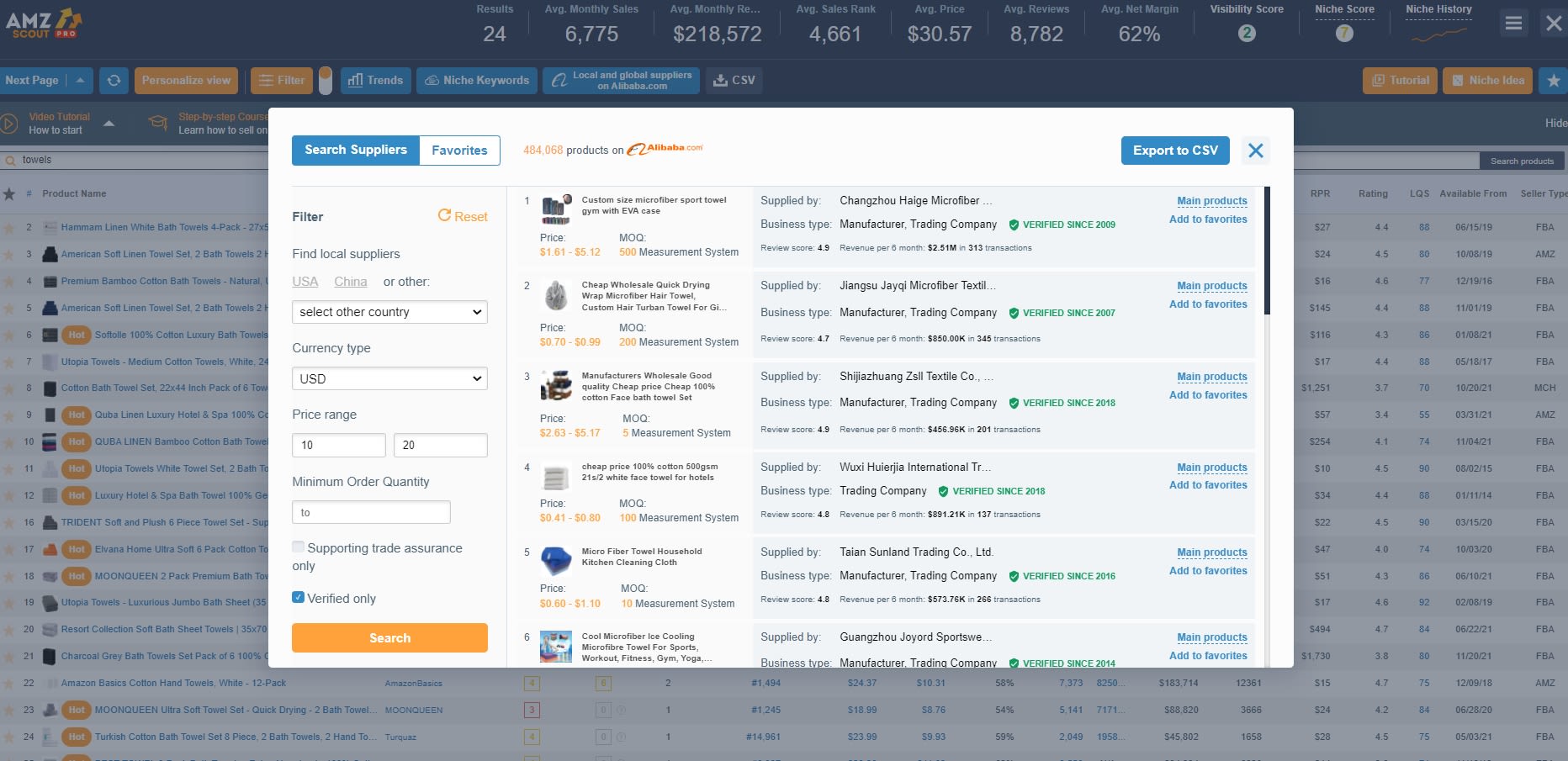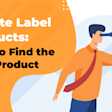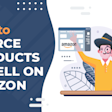
Private Label Manufacturers Sourcing Guide
Private label sellers take the products manufacturers make and put their unique branding on them. Because of this, there is relatively low overhead and great potential for brand loyalty. You can do all of this with relatively little knowledge of a product.
But before you can get a product, you need to work with a manufacturer. Below, you’ll find a guide you can use to help you find and choose a private label manufacturer.
Table of contents
How to Find a Good Private Label Manufacturer
Regardless of what platform you use to find a private label manufacturer, you need to make sure they are good. Below are some areas to look at when searching:
Quality - You can find this out by ordering a sample of the product and looking at information about their manufacturing process.
Reviews - Find more information by looking at experiences that fellow private label sellers have gone through. You can find reviews by searching on Google or using private label websites.
Prices - Determine the manufacturing costs using advertised prices and discuss the potential of better rates for larger orders. Comparing multiple manufacturers of similar products can also help.
Manufacturing and shipping time - Get an estimated amount of time for receiving the product so you can plan accordingly. If you want to save time, stick to simple, easy-to-make products.
Payment security - Use a secure payment platform like a private label website that provides protections in the event quality issues come up. If you find a trustworthy direct contact, make payments via sites like PayPal.
Keeping these criteria in mind, you can become a one of the many successful online vendors in private label sales. At the bottom of this article, you’ll find more data on specific search methods for finding the best manufacturing companies.
The criteria for finding the best private label manufacturers differ from finding dropshipping suppliers or wholesalers. Ultimately, you need to be concerned with the quality of the product, as you’ll be stuck with many copies of it upon purchase.
How to Choose a Private Label Product
Before you can start with a manufacturer, you need to decide on what product you want to sell. The products you choose must be based on what can provide you with consistent sales.
If you sell on Amazon or almost any eCommerce site, AMZScout is one research tool you can use to find high-quality products. Below, you’ll find out how you can use their tools.
Using the AMZScout Product Database
Trying to find the perfect product can be overwhelming given the millions of options Amazon has. If you want to find product ideas that meet all your criteria, the AMZScout Product Database can help you out.
The Product Database lets you search Amazon’s inventory using various filters. These include price, estimated sales, weight, size, category, seller type, rank, reviews, and more.
Here’s how to use the Product Database:
Step 1. Go to the AMZScout Product Database.
Step 2. Take advantage of the free trial by entering some basic information. You don’t need a payment card to start.
Step 3. Define product criteria using the search filters. You can find the best private label products with the sales filter. One example, you can search for products with sales greater than 300 per month.
Step 4. Use the category filters to narrow your search and focus on products you want to sell. The product selections feature helps you save time with proven pre-built searches.
Step 5. Focus on new and trending products. The Trending products checkbox lets you focus on products that have grown heavily over three months. You can also check the New products box to find recently released items. Knowing both can help you find the best trends.
Step 6. Generate results by clicking “Find Products”.
Step 7. Focus on items that have the most potential by making a list. High viability products use important states like sales and reviews.
The steps above will help you find a list of products that meet your requirements. Review this list and select the products you are interested in selling.
Using the AMZScout PRO Extension
After you have your product list (from the database of personal areas of interest), you need a deeper dive to be sure you can sell them. By using the AMZScout PRO Extension, you can easily find out.
Here’s how to use the extension:
Step 1. Install the AMZScout PRO Extension on your favorite browser (Chrome or Edge)
Step 2. Focus on areas you have an interest in. Use the regular Amazon search bar (the one for customers) to start.
Step 3. Open the extension. In the top-right corner, you’ll find the AMZScout PRO Extension among your browser add-ons, click it to open the extension after the search page is open.
Step 4. Use the dashboard to find useful data for listed products. This data includes price, rank, sales, reviews, and other useful insights like the net margin.
Step 5. Check the product and niche viability. Next, you’ll want to check the product’s overall quality. Click Niche Score to look at how the niche has performed in the past. The score is out of ten and analyzes the niche based on competition and demand. You can also look at individual products by clicking the Product Score next to any product you want.
Step 6. Pay extra attention to the historical data. Dig into different months and years to help you make better decisions on price, rank, and potential sales.
Step 7. Use a combination of current and historical data to focus on high-potential products. Take this data and line it up with other information (potential profit and fees) to help you see if the product has good potential.
With the steps above in using the AMZScout PRO Extension and Product Database, you will have no problem finding excellent products for your private label business. This tool works for any eCommerce platform or product type.
Different Product Types You Can Choose (pros and cons)
Knowing how to research is a good thing to know. However, there are inherent pros and cons of each type of product. Below, you’ll see a list of those potential products:
Cosmetics - This product line is incredibly competitive, but can cause excellent earnings if you find an underserved niche.
Kitchenware - One of the most common product label types because of how easy it is to manufacture.
Vitamin supplements - Among health products, this is a good starting point. You’ll have to be concerned about expiration dates.
Clothing - There are many apparel brands on Amazon, so you’ll have to put in extra effort to stand out and remain competitive.
Skincare - Skincare is another competitive part of the beauty niche, but is full of potential influencers you can target.
Makeup - Makeup is also incredibly competitive and has high potential for influencer association. There are many niches of underserved markets, it just takes a bit of effort to find one.
Baby products - Baby products are like kitchenware because it has a small barrier to entry and some good profit margins. Other sellers know this, so you’ll need to be quick.
Candles - The candle niche has specific scents with a seasonal focus. It can be pretty competitive, so you’ll have to find an interesting way to stand out.
Hair products - Hair products are competitive with many beauty companies, making this a tough nut to crack. However, there are some underserved niches you can find.
Jewelry - Has a high barrier to entry but results in some pretty major sales. You’ll want to focus on areas that won’t break your wallet and be slow to sell (for example, jewelry around $35 to $50).
Pet products - Pet products have a lot of niche potential given the many pets in the world. Finding an underserved niche can be easy, but you want to make sure there are enough people before pursuing it.
Shoes - Much like clothing, selling shoes can be an arduous task. You’ll want to keep a close eye on trending topics and create unique designs to remain competitive here.
Whether you are a new seller or a veteran one, you’ll find that these tips can shift over time. Whatever you choose, always be sure that the product has potential and you can actually make money.

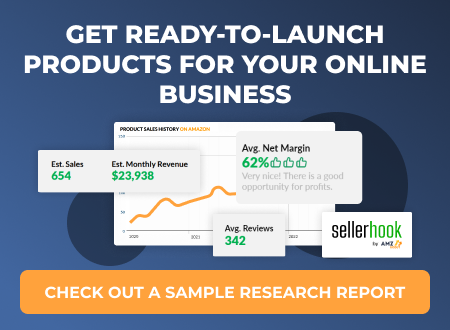
Best Places to Find Suppliers and Manufacturers
So, now that you know how to find products and what to look for in suppliers, you need to know where you can find those suppliers. Private labeling has a lot of different companies to work with. Below are some quick tips you can use to find some suitable partners.
Web surfing
Using search engines like Google and Bing and searching “private label manufacturer” can help you find some basics. Regardless of what manufacturer you choose, always be sure to check them out using confirmed third-party sources. If the manufacturer doesn’t have a Facebook page with reviews or a Trustpilot account, think twice before buying.
Manufacturing directories
Manufacturing directories hold a list of manufacturers that specialize in various areas. Much like with web surfing, you’ll want to use third-party sources or check if the directory has customer reviews of the manufacturers. For example, Impressions Directory provides one area where you can look for private label manufacturers.
Online marketplaces
Online marketplaces are like directories, only they are built for immediate purchase. It operates similarly to an eCommerce site, where you can pay for products directly through the system.
These marketplaces offer excellent payment protection and are a one-stop shop for finding reviews and testing quality. Given that most of these sites show overseas manufacturers (those outsides of the USA), you can also save a great deal.
Alibaba is the most popular online marketplace. However, there are others like AliExpress and ThomasNet.
Conclusion
If you don’t want to be one of many sellers who handles generic products, private label sellers help you build a brand. To stand out, be helpful, and become memorable are crucial to taking your eCommerce business to the next level.
We hope this guide helps you find the best private label products for your business. But you won’t know until you try it out, so go out there and use these tips to become a real income producer.

